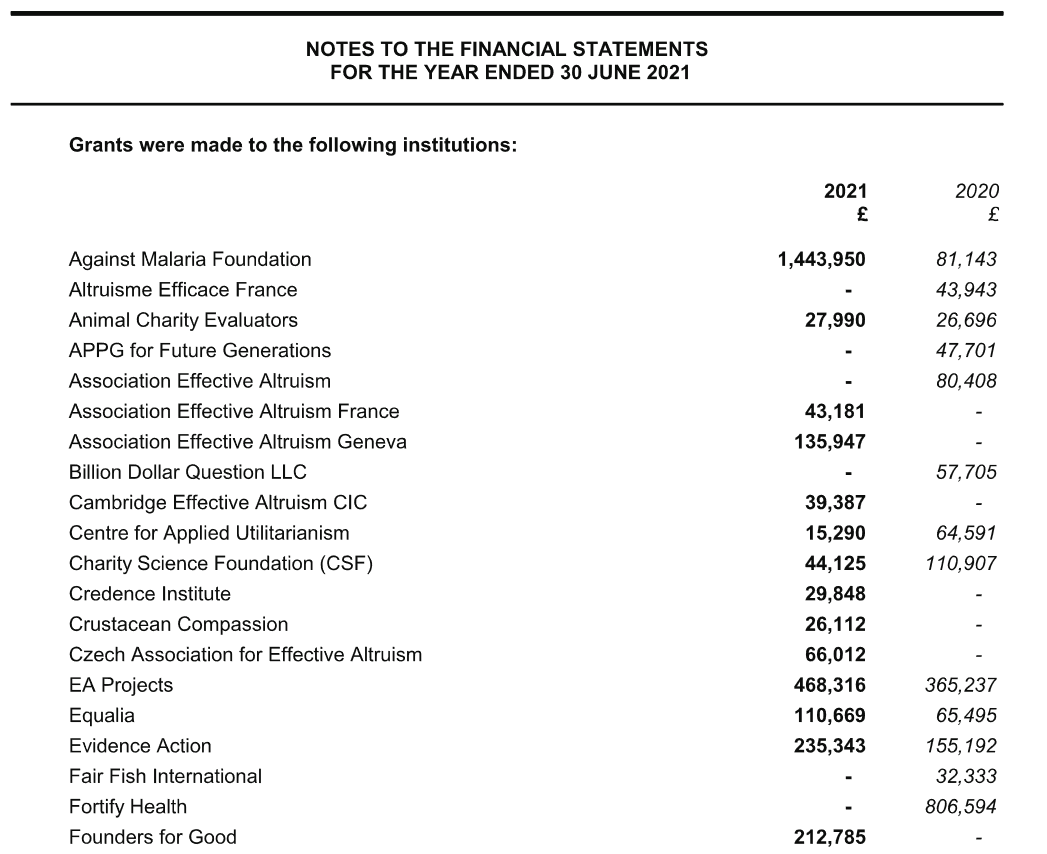Public reports are now explicitly optional for applicants to EA Funds. We have updated our application form and other outwardly-facing materials to reflect this change.
- If you are an individual applicant or a new organization, choosing not to have a public report will very rarely affect the chance that we fund you (and we will reach out to anyone for whom it would make a substantial difference).
- If you are an established organization, choosing not to have a public report may slightly decrease the chance that we fund you. We are generally happy to omit mentions of individuals from public grant reports of organizations at their request.
- If we are uncomfortable making a grant privately with EA Funds money, we may ask to forward your application to private donors we are connected to, or to other large funders in the space.
Broadly, we think there are many valid reasons not to want a public report, and we don't want anyone to be discouraged from applying to us for funding. If you or someone you know could use funding productively but was previously discouraged by our payout reports, please apply or encourage them to apply.


No, I have many more important things to worry about, including but not limited to making good grants.
I assume but have not verified that Effective Ventures and our large funders have access to good auditors.
At the risk of saying the obvious, to be able to concretely demonstrate whether money is not "effectively siphoned", you need to de-anonymize not just the grantees but (much more importantly) all the donors. This is not something most charities do publicly, and AFAICT is typically handled the normal way through having good accountants, auditors, a legal system, etc.
We are already much more public than the vast majority of institutions (for-profit or non-profit). I don't think "every person who works part-time in a foundation needs to be able to trace exactly where every dollar comes from or goes every time some person on the internet asks for this" is a reasonable bar for "lower than baseline probability of being a con artist."
Taking a step back, I think if this is something that you're very concerned about, it'd be interesting to plan out how to investigate EA charities for fraud. I'm not sure how valuable this work will be, but at least it's plausibly the type of thing that has a reasonably high EV. I assume a good first step is to talk to a representative sample of really good auditors.